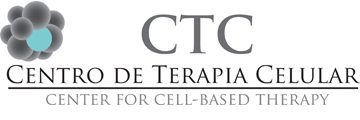Recruit and follow 10 patients with refractory/relapsed aplastic anemia for treatment with immunosuppression and mesenchymal stromal cells and observe safety, hematologic response and MSC homing to the bone marrow niche
Acquired aplastic anemia (AA) is a bone marrow failure characterized by pancytopenia and empty bone marrow. For patients with AA who are refractory or relapse after first line immunosuppressive therapy lacking a suitable donor for transplant, therapeutic options may be challenging due to insufficient immunosuppression or profound depletion of the hematopoietic stem cell compartment. Given the immunomodulatory effects of mesenchymal stromal cells (MSC), we conducted a phase I trial adding allogeneic MSC infusion to standard rabbit ATG plus cyclosporine as second line treatment. Nine refractory or relapsed AA patients were recruited and treated with 2-5 weekly intravenous infusions of allogeneic unrelated non-HLA-matched bone marrow MSC (mean of 2.51 x106 cell/kg/infusion ± SD: 0.83). The primary endpoint was safety and secondary endpoints were response at 6 months, MSC engraftment measured by FISH X/Y (MSCs were sex-mismatched) and by PCR for VNTR genes; and lymphocyte profile, measured by flow cytometry. No acute or chronic adverse effects related to infusions were observed after a 14-month median follow-up (range, 2-36.8). Seven patients were still alive and two patients had partial response; no complete response was achieved. Two deaths occurred, one due to acute heart failure related to severe hemochromatosis one week after the third MSC infusion, and one patient succumbed to bacterial lung infection 14 months after treatment. Patients’ marrows were sampled at days 0, 30, 90, and 180 after treatment and MSCs were separated. We failed to observe any engraftment of infused MSCs by FISH or VNTR. The numbers of CD4, CD8, and Treg cells in bone marrow remained unchanged before and after infusions. We concluded that the use of intravenous MSC infusion in patients with AA was clinically safe, but its addition to standard IST appeared not to translate into clinical benefit. We demonstrated that intravenously infused MSCs did not engraft in bone marrow of AA patients, which should be taken into account in future clinical trials for MSC use (clinicaltrials.gov number, NCT01297972).
